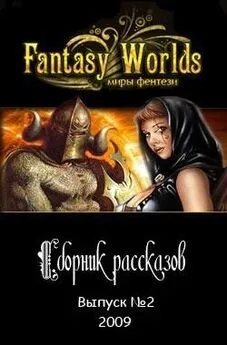Пользователь - WORLDS END
- Название:WORLDS END
- Автор:
- Жанр:
- Издательство:неизвестно
- Год:неизвестен
- ISBN:нет данных
- Рейтинг:
- Избранное:Добавить в избранное
-
Отзывы:
-
Ваша оценка:
Пользователь - WORLDS END краткое содержание
WORLDS END - читать онлайн бесплатно полную версию (весь текст целиком)
Интервал:
Закладка:
Lanny smiled to himself. His chief called himself a "liberal," and Lanny had been trying to make up his mind just what that meant. He decided that a liberal was a high-minded gentleman who believed the world was made in his own image. But unfortunately only one small part of it was deserving of such trust. He had been looking for such a spot, and the only one he had found was the tiny country of Denmark, whose delegates had come to the conference determined not to take on any racial minorities. Others were trying hard to persuade them to accept a chunk of Germany down to the Kiel canal; but they would have no land of which the population was not preponderantly Danish - and they would insist upon a plebiscite before they took even that. If only the whole of Europe had been "liberal" according to that formula, how simple all the problems would have been!
VII
President Wilson returned to Paris in the middle of March, one month after his leaving. There were no tumultuous receptions this time; the various peoples of the world had learned that he wouldn't give them what they wanted, and couldn't if he would. He came a beaten man; for the expiring Congress had left unpassed three vital appropriation bills, in order to make certain that he would have to summon a special session of the new Congress. He arrived at a Peace Conference which had laid all his Fourteen Points on the shelf, and also its own resolution of seven weeks earlier, whereby the Covenant of the League of Nations was to become a part of the peace treaty.
Wilson set his long Presbyterian jaw and went into a three-hour conference with the two head malefactors, Clemenceau and Lloyd George. When he came out from it he gave out a statement to the effect that the Covenant was a vital part of the treaty and would remain in. Then what a steaming and stewing, a bubbling and boiling of diplomatic kettles! Pichon, French Foreign Minister, issued a declaration to the effect that the Covenant would not have any place in the treaty; and when the reporters asked him about President Wilson's statement, he said he hadn't heard of it. There was a great scandal, and Clemenceau was forced to "throw down" his foreign minister and stop the publication of his communique. Then Lord Robert Cecil gave out a statement supporting Wilson's side, and the clamor of the Tories forced Lloyd George to throw him down. So it went, back and forth; those elderly gentlemen met and argued until they were sick of the sound of one another's voices. The shrill clamor penetrated to the attaches outside, and caused them to look at one another with anxious faces, or perhaps with mischievous grins.
The "Big Four" were meeting by themselves now, resolved to push things through and get done. A more oddly assorted quartet of bedfellows had rarely been chosen by political fate. Woodrow Wilson was a stiff and grave person, of principles which he held as divinely ordained. He kept his sense of humor for his private life; in public it was his function to deliver eloquent discourses in favor of righteousness, and at this there was no one in the world to rival him. He brought his great talent to every session and exercised it upon Georges Clemenceau, who sat hunched in his chair with eyes closed, the picture of agonized boredom; every few minutes the Tiger would open his heavy-lidded eyes and reply with any one of half a dozen French words, the equivalent of four-letter English words which every guttersnipe knew, but which few had ever seen in print.
This form of political argument was something hitherto inconceivable to the Presbyterian professor. He had been brought up to the idea that scholar and gentleman formed an inseparable combination; but here was a scholar who was perfectly content to be a blackguard and a rascal. His political career had been that of a Tammany Hall boss - so Robbie Budd had told his son. As Lanny didn't know much about New York City's political history, the father explained that forceful men of the people went into politics, their hearts bleeding for the wrongs of the poor; so they collected votes and built up a political machine, which they used to blackmail their way to fortune.
The Tiger, now seventy-eight, had seen a great deal of the world, but here was a phenomenon the like of which he had never encountered: a politician who in the presence of other politicians pretended to mean what he said in his speeches! At first Clemenceau had found it absolutely infuriating; he had raged and stormed, and there was a dreadful story going the rounds that he had struck the President in the face and that Lloyd George had had to separate them. You met people who declared that they knew this story was true; but how did they know it? Others reported that as the battles of the Big Four went on, the Tiger began to take a humorous attitude; at the end he had actually grown fond of this odd phenomenon, as one might of some human freak, a man with two heads or four arms.
The mediator in the battle was Lloyd George, one of those super-politicians who could be on both sides of every question. Lloyd George had begun as "a little squirt of a Welsh lawyer," friend of the people and a terrifying demagogue. When he got power he had kept it by the device of selling titles of nobility to beer barons, press lords, and South African diamond kings. In his recent "khaki election" he had become the slave of a Tory majority, and he swung back and forth between what they told him to do and what he thought would please the public. He was gay and personally charming, and possessed what was called a "mercurial temperament" - meaning that he didn't mind saying the opposite of what he had said yesterday, if in the meantime he had found that he was in danger of losing votes. In this he was the twin brother of Orlando, the Italian Premier, a good-looking and amiable old gentleman whose one thought in all issues was to gain some advantage, however tiny, for his native land.
VIII
A terrifying world in which this duel of wills went on. The war upon the Soviets was continuing on a dozen fronts, but without notable success. A Red Hungary had been added to a Red Bavaria and an almost Red Berlin. The Poles were fighting the Ukrainians for the possession of Lemberg. The Italians were threatening to withdraw from the conference unless they were permitted to fight the Yugoslavs for the possession of Fiume. The Armenians were in Paris demanding freedom from the Turks, and the Turks were trying to settle the problem by killing the last Armenian before a decision could be reached. Not one, not a dozen, but a hundred problems like that, all being dinned into the ears of four bewildered and exhausted old men.
They wrangled over the question of Danzig and the proposed Polish Corridor to the sea. They decided it, and then, when the clamor rose louder, they undecided it and referred it back to the commission. So geographers and ethnographers and their assistants were summoned once more, and Lanny Budd lugged his portfolios into the high-ceilinged, overheated conference rooms at the Quai d'Orsay, and stood behind his chief for hours - there being not enough chairs for secretaries and translators. Lanny couldn't help but feel grave, for there was a consensus among the American experts that here was where the next war would start.
The real purpose of that corridor had by now become clear to all; the French were determined to put a barrier between German manufacturing power and Russian raw materials, which, if combined, might dominate Europe. So give the Poles access to the sea by driving a wedge through Germany, with Danzig for a port. But the trouble was that Danzig was a German city, and the proposed corridor was inhabited by more than two millions of that race. When this was brought to President Wilson's attention, he produced a report from Professor Alston, pointing out that this district had been Polish, but had been deliberately "colonized" by the Germans, by the method so well known in Europe of making the former inhabitants so miserable that they emigrated. At a conference with his advisers President Wilson said that this appeared to be a case where one principle conflicted with another principle. Alston reported this remark to Lanny, and the youth asked questions of his chief. Could two principles be principles when they contradicted each other? Apparently it was necessary for men to have such moral maxims; but there would seem to be something wrong when they betrayed you in an emergency. The highly conscientious gentlemen at the Crillon racked their brains for some way to prevent fighting in that corridor. Most of the scholars were inclined to sympathize with the Poles - perhaps on account of Kosciuszko, and because in their youth they had read a novel called Thaddeus of Warsaw. But, alas, their sympathies were weakened by the fact that the Poles were carrying on dreadful pogroms against the Jews; and if they were that sort of people, what were the chances for the two million Germans of the corridor? The time was Out of joint: О cursed spite, that ever college professors were born to set it right!
BOOK SIX
They Shall Reap the Whirlwind
32
I Have Seen the Future
I
PARIS was dancing. It was a mania that had seized all "society"; in hotels and cafes, in private drawing rooms, wherever men and women met, they spent their time locked in one another's arms, swaying and jiggling this way and that. These modern dances seemed to have been invented to spare the necessity of any skill, any art; if you knew how to walk, if you were sober enough so that you could stagger, then you could dance, and you did.
Lanny didn't have much time for diversion, but his mother went out now and then, and when he called on her, she would tell about her adventures. More than once she had left the room because of disgusting things she had witnessed. Beauty's world seemed to be coming to an end; that world of grace and charm for which she had spent so many years equipping herself. She had learned all the rules - and the result was she was out of date. Men no longer wanted coquetry or subtlety, elegance, even intelligence; they wanted young females to hug, and that was too cheap and easy, in the opinion of Beauty. She said that apparently the real horrors of war didn't begin until it was over.
Her old friends were scattered. Sophie, Baroness de la Tourette, had lost her lover in the last dreadful fighting on the Marne, and had gone back to visit her relatives in Ohio. Margy Eversham-Watson was at her country place in Sussex, his lordship having been struck with a bad attack of gout. Edna Hackabury, now Mrs. Fitz-Laing, was on the Riviera, waiting for her husband to return from a military expedition in the Near East. All these persons were unhappy in one way or another, and Beauty, who craved pleasure as a sunflower craves the light, seemed as if trying to flee from her world. A horrible world! She told Lanny how, sitting at dinner next to Premier Orlando, that genial statesman had declared himself displeased that so lovely a woman had waited eighteen years between children. In his family it was different, he gravely assured her; his wife never got up from her accouchement bed without being pregnant again.
More and more she was coming to rely upon Emily Chatters-worth, a tower of strength in times such as these. Emily had money enough and force of will enough to make a world of her own. Emily had learned the rules, and persons who didn't know them and obey them got no share of her hospitality. In her home you met intellectual people and heard serious talk of the problems of the day, as well as of literature and art and music. Beauty would remark sadly that she was coming to an age where it was necessary for her to be intellectual; she would go to one of Emily's soirees, and listen while more brilliant persons talked, and come home and tell Lanny whom she had met and what compliments they had paid her.
Читать дальшеИнтервал:
Закладка:




![Галина Романова - Лицензия на happy end [litres]](/books/1058996/galina-romanova-licenziya-na-happy-end-litres.webp)
